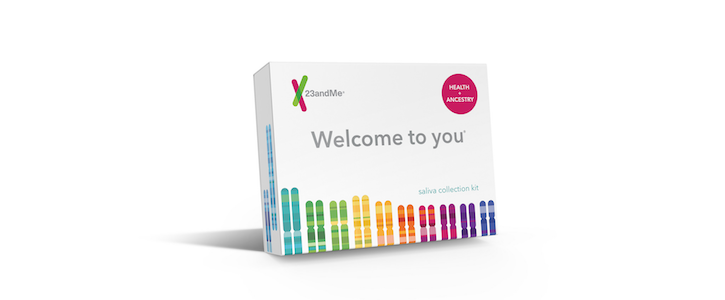23andMe Genetic Test for Colorectal Cancer Syndrome Gets FDA Clearance
Why the clearance is a win for 23andMe and the direct-to-consumer genetic-testing industry.

Genetic-testing giant 23andMe has won U.S. Food and Drug Administration (FDA) clearance for a direct-to-consumer genetic test that could determine a customer’s risk of developing a colorectal cancer syndrome.
The news is a shot in the arm for 23andMe and the broader field of direct-to-consumer genetic testing. The FDA had barred the company from marketing genetic health-risk tests for several years, but 23andMe last year earned agency clearance for a breast cancer genetic test, a move that led to today’s announcement. Overall, the pair of FDA clearances suggests that 23andMe is only digging deeper into its health business — and we can probably expect more such tests in the future.
>> READ: Handling the Headaches of At-Home Genetic Testing
“We believe improved access to genetic testing and health information will help people engage in their own health,” 23andMe CEO and co-founder Anne Wojcicki said in a statement today.
The new 23andMe test scans for two genetic variants that are known to influence MUTYH-associated polyposis.
Although consumers can’t yet run the assessment, new and existing 23andMe patrons will be able to receive reports on their risk levels. But it’s up to consumers to decide whether they want to receive this information at all — a move that could ease critics worried about informed consent and direct-to-consumer genetic tests.
After 23andMe locked down FDA clearance for its BRCA1/BRCA2 test in March 2018, it used data on the report as a predicate device to support its latest clearance.
The MUTYH-Associated Polyposis Genetic Health Risk test has at least 99 percent accuracy, and its educational materials reach at least 90 percent reading comprehension among diverse consumers, according to 23andMe.
The test zeroes in on two genetic variants that increase a person’s risk of developing colorectal cancer to anywhere from 43 to 100 percent. Early detection could help these individuals fight or even prevent cancer.
But on the whole, hereditary colorectal cancers make up just 5 percent of all colorectal cancer cases.
It’s that kind of nitpicking that 23andMe must successfully execute if it is to make its test a commercial and healthcare success. Avoiding undesirable variables — people’s misunderstanding of the concepts, hysteria and even an overburdened medical system — depend on proper education, or so the FDA and other experts seem to believe.
Get the best insights in healthcare analytics directly to your inbox.
Related
How Did 23andMe Stumble in Its Early Days?
Genetic Privacy Is Vague, Conflated for Patients and Researchers
23andMe Secures FDA Clearance for First DTC Genetic Test for Medication Metabolism